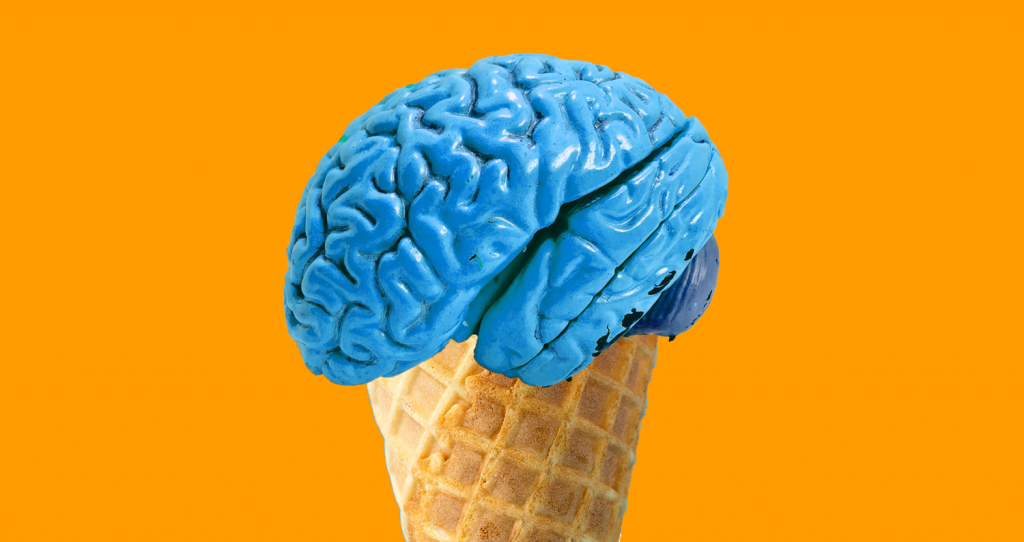This post is also available in Dutch .
It’s summer again, so it’s time for ice cream, milkshakes, and large glasses of ice-cold soda… All very tasty, but they might also cause brain freeze! Why does your head hurt when you eat or drink something cold?
Cranial nerves and blood vessels
The exact mechanism behind brain freeze is not yet fully understood, but it seems that there are two main players: the blood vessels in your head and the cranial nerves (which connect the brain and body). According to one interesting theory, it works as follows: It all starts when you put something cold in your mouth, like a bite of ice cream. If it is too cold, one of the cranial nerves is activated – which one depends on where the cold hits you. For example, if the cold hits your palate, the trigeminal nerve, which connects the brain and the face with each other, becomes active. This activation causes your arteries to widen and more blood to flow through them, as if a tap is turned on. This way, the widening of the blood vessels could create extra pressure, causing pain. Usually you feel this pain in the front or on the side of your head.
The widening of the blood vessels probably contributes to an important goal. In a previous blog I already mentioned that the brain should not get too warm, and that yawning may be a method to cool the brain. At the same time, the brain should also not become too cold. The extra supply of warm blood could prevent this.
Short yet powerful
The good news is that this type of headache often lasts only a short time – after half a minute the pain is usually gone. This short time frame makes brain freeze very useful: because it is easy to induce and has no unpleasant long term consequences, brain freeze can possibly be used to research headaches!
Do you ever suffer from a brain freeze?
If brain freeze never bothers you, that’s not unusual. The percentage of people who are sensitive to it is still unclear. For example, only 7.6% of Swedish women aged 40-74 were sensitive to it, compared to 79% of teenagers in another study. So, if it never bothers you: good for you!
Do you suffer from brain freeze and would you like to prevent it this summer? Then make sure your palate doesn’t get too cold by slowly eating your ice cream or drinking your milkshake. If you do feel brain freeze coming on, you can warm up your palate again by drinking some warm water or pressing your tongue against your palate.
On behalf of DondersWonders, I wish you a warm summer and a warm enough head!
Credits
Author: Marlijn ter Bekke
Buddy: Felix Klaassen
Editor: Brittany van Beek
Translation: Floortje Bouwkamp
Editor translation: Rebecca Calcott
Image by Marlijn ter Bekke using pictures from Natasha Connell and Mae Mu
